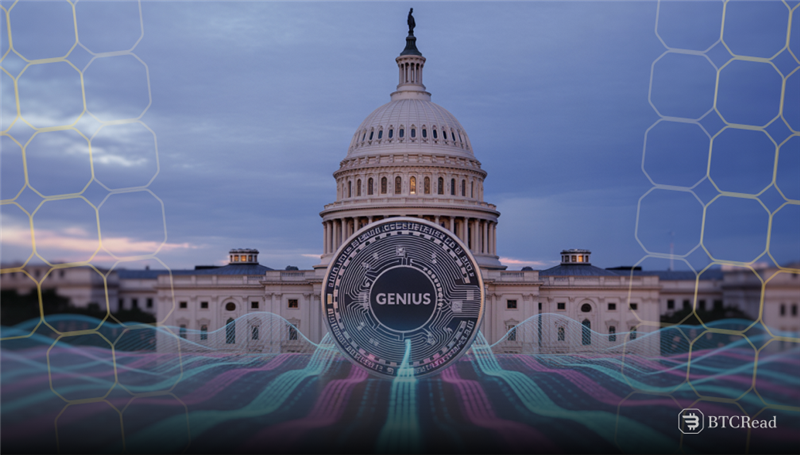The U.S. Senate voted 68–30 to move forward on the GENIUS Act, a stablecoin regulation bill. The vote invoked cloture, a step that limits further debate. This decision sets the stage for a final vote on the bill as early as next Monday, unless Senate leaders agree to shorten the time.
The GENIUS Act would require stablecoins to be fully backed by U.S. dollars or similar assets. It also demands yearly audits for issuers whose market cap exceeds $50 billion. Lawmakers aim to bring more clarity and control to digital currency markets through these rules.
Supporters of the bill say it strengthens innovation and improves national financial security. The legislation saw bipartisan support in the Senate. However, some Democrats voted against it. Others crossed party lines to vote in favor.
GENIUS bill faces house challenge
President Trump’s advisors said they support the bill. They stated that if it reached his desk in its current form, they would urge him to sign it into law. Trump wants stablecoin rules in place before August.
Even if the Senate passes GENIUS, the House remains a hurdle. The House Financial Services Committee passed its stablecoin bill in May. The full House has not yet voted on it. Both the House and Senate versions differ in how they regulate stablecoin issuers.
Disagreements remain about how to handle state versus federal oversight and foreign companies like Tether. The road to this point had ups and downs. An earlier attempt at cloture failed with no Democratic support.
Trump’s crypto ties stir regulation fears
A revised effort gained broader backing. Some senators voiced concerns about foreign issuers, money laundering safeguards, and corporate roles in the stablecoin space. Trump’s links to crypto added tension.
His family has launched digital coins and related ventures. One of these efforts released a stablecoin backed by his affiliated company. Lawmakers now worry these business ties could influence regulation. In the House, other crypto bills have also advanced.
On Tuesday, the House Financial Services Committee pushed forward a broader crypto market bill. It drew several amendments from Democrats, who raised issues about potential conflicts of interest tied to Trump’s involvement in crypto.







